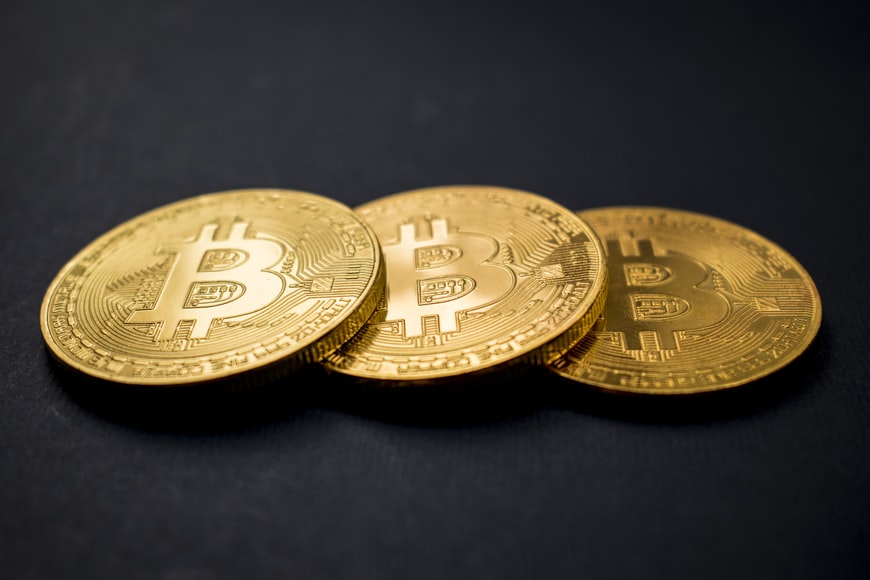
Bitcoin is a digital asset and a payment system invented by Satoshi Nakamoto. Transactions are verified by network nodes through cryptography and recorded in a public dispersed ledger called a blockchain. Bitcoin is unique in that there are a finite number of them: 21 million.
Bitcoin can be sent from user to user on the peer-to-peer Bitcoin network directly, without the need for intermediaries. Transaction fees are meanwhile minimal, and Bitcoin storage is secure as long as bitcoins are kept in a bitcoin wallet. Bitcoin issuance and transactions are carried out collectively by the Bitcoin network. Bitcoin is open-source; its design is public, nobody owns or controls Bitcoin and everyone can take part.
The price of a Bitcoin fluctuates continuously and various factors affect it. Besides Bitcoin's status as a new invention with a highly speculative value, one of the main reasons for such volatility is that its relative value does not stem from any intrinsic value or guarantee that its value will continue to rise over time – unlike dollars or gold, for example. Bitcoin is still new and it has only recently become more widely traded as its use case has expanded to include store-of-value, international remittance, microtransactions, etc.
Bitcoin Revolution can be purchased on exchanges or even directly from individuals who have them. Bitcoin can be exchanged for other currencies
Volatile Nature of Bitcoin
Bitcoin is a digital asset and a payment system invented by Satoshi Nakamoto. Bitcoin is unique in that there are a finite number of them: 21 million.
Bitcoins are created as a reward for a process known as mining. They can be exchanged for other currencies, products, and services. As of February 2015, over 100,000 merchants and vendors accepted bitcoin as payment.
Bitcoin is volatile because its price is based on supply and demand. The Bitcoin network is regulated by users who verify transactions through proof-of-work. When demand for Bitcoin increases, the price goes up. When demand decreases, the price goes down. Bitcoin is also used as an investment, and people will buy Bitcoin if they think its price will go up. On the other side of that equation are people who want to sell Bitcoin because they think its price is going down.
Bitcoin's volatility has decreased substantially since Mt. Gox incident in 2013, but it remains significantly more volatile than other currencies globally, and this dynamic is expected to continue for some time. Bitcoin prices saw tremendous activity during 2016-2017, including a Bitcoin price rally above $3,000 following the U.K.'s Brexit referendum results in late June 2016, peaking at around $4,850 on September 3rd, 2017. Bitcoin prices then fell dramatically over the next several weeks before starting a gradual recovery through the remainder of the year. Bitcoin prices are currently trading around $12,000 after having reached a peak of about $20,000 in December 2017.
Declines in Bitcoin Investment
Bitcoin is highly sensitive to media coverage and public perception - if investors lose faith in Bitcoin for any reason, it can cause significant declines. Bitcoin's price rose sharply during late 2013 and early 2014 as Bitcoin gained more public exposure through mainstream media outlets. It has since levelled off at a low level over the last several years, notably dropping following China's crackdown on Bitcoin exchanges in September 2017. Bitcoin generates more discussion today than it ever has before so this means you should be extra vigilant when attempting to predict where prices will go. A negative impact on investor sentiment may have large-scale effects on Bitcoin's price.
Bitcoin’s Progress Globally
China is one of Bitcoin's largest markets (both in terms of users and miners) and Bitcoin's future there is uncertain. Bitcoin use by Chinese citizens has dropped substantially after the government banned initial coin offerings, shuttered Bitcoin exchanges, and limited Bitcoin mining operations. China accounts for up to 60% of trading volume on Bitcoin exchange OkCoin. More than 90% of Bitcoin trading occurs on OkCoin and BTC China just 2 platforms among many across the globe which shows that Bitcoin was not even more centralised than it already is.
The bottom line here: if there is a perceived problem with Bitcoin or any other cryptocurrency, expect investors to flee while governments may move in quickly to quash anything they don't like about the situation.
